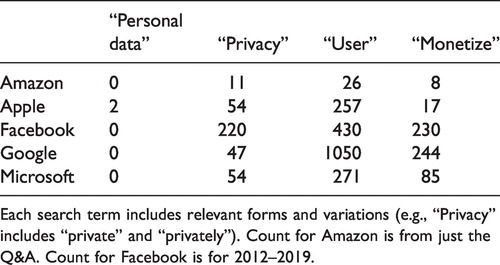
Alison Harvey
Alison Harvey
Alison Harvey’s research focuses on inclusion and equity in digital culture and creative work. Her recent work explores the role of formal and informal education in supporting greater participation of women, racialized people, LGBTQ+ individuals, and others who have been excluded and marginalized in digital game production. Harvey highlights the limitations of the ‘pipeline’ metaphor as a solution to exclusion foregrounding entryways rather than the culture and structure of work in this major creative industry. The research shows that the digital games production industry fails to address the myriad ways in which exclusion functions in activities from skills training to internship opportunities to recruitment processes. It also does not recognize the ongoing marginalization occurring in the workplace in games, ranging from microaggressions in teams, pay gaps, and inadequate care accommodations to sexual harassment and racist abuse. Her work challenges the viability of the supposed easier solution of focusing on entryways by situating them within historical and systemic problems of inclusion in games.
Her future projects push this further by considering how mentorship is organized to support equity in creative technology work and exploring how organizations seeking greater inclusion can assess the impact of their activities. Overall, her research aims to provide a critical lens on what are seen as solutions to exclusion to better address the barriers faced by marginalized people in creative and tech work.
Kean Birch
My colleagues – Troy Cochrane and Callum Ward – and I decided to examine how ‘Big Tech’ (Apple, Amazon, Google, Microsoft, Facebook) transforms digital personal data into a private asset. Our findings, though, showed that users are made measurable and legible as assets, rather than personal data per se. Hence, the assetization of digital data entails a specific form of governance predicated on the monetization of user data within digital “ecosystems”. This is because Big Tech cannot de jure own personal data as an asset, as illustrated by the near absence of references to personal data in earnings calls or on their balance sheets. Instead, users are assetized – turned into assets – through (1) the deployment of standards and digital architectures to measure and delineate users and usage; (2) the configuration of users within an ecosystem; (3) the contractual (i.e., terms of service) and technical (i.e., interoperability restrictions) enclosure of user and usage metrics for different purposes (e.g., training algorithms, data analytics); and (4) the capitalization of future revenues derived from different monetization mechanisms, including locking-in users to digital ecosystems (e.g., Apple), offering subscription services (e.g., Microsoft), selling access to users and user data (e.g., Facebook, Google), or collecting a range of fees for use of a platform (e.g., Amazon). We called this “techcraft” – echoing the arguments of James C. Scott on “statecraft” – since it involves making a particular kind of data (i.e., user metrics) measurable and legible as an asset to Big Tech and their investors. Innovation and business strategies are specifically valued on the back of the generation of user numbers, user engagement, user clicks, click-through rates, and so on.


Kean Birch

Michelle Charette
Michelle Charette
Michelle Charette’s SSHRC-funded dissertation is a critical, philosophical, and ethnographic study of chronic pain care in North America. Her research describes the landscape of pain care from the perspective of healthcare consultants, digital health innovators, pain specialists, and patients living with chronic pain across Canada. The project considers (and answers) various questions concerning the North American pain landscape: How do data promises influence patient behaviour? How does biomedicalization impact pain medicine (both clinically and experimentally)? How might chronic pain care and care ethics come together?
Initiatives in recent years have encouraged patients to take responsibility for their pain care using domesticated healthcare devices (VR programs and symptom-tracking apps). The devices are designed not only in service of the patient but also in service of aggregate level data collection. The commodification of pain science (re)configures the illness narratives of patients, determining when pain counts in the diagnostic encounter.
Her work places the voices of sufferers alongside the oft-optimistic and significantly louder messaging that accompanies novel pain biotechnologies. Drawing on scholarship in STS, critical health studies, and philosophy, at the heart of the project is an attempt to understand how (and if) emancipation from chronic pain is possible in this technological context.
Michelle has book chapters coming out in The Routledge International Handbook of Sensory Ethnography (co-author), and in Naked Fieldnotes: A Rough Guide to Ethnographic Writing. She has published several book reviews (of Don Ihde’s Medical Technics, George Estreich’s Fables and Futures, and Michele Ilana Friedner’s Sensory Futures – forthcoming.
Johannes Chan
My research focuses on the environmental history of watermills in long-nineteenth-century Ontario — particularly its relationship to British colonialism and empire. I developed an interest in this subject when completing master’s research on micro-hydro power in rural Nepal. The political complexities of hydropower in Nepal provoked questions for me about the historical development of hydro infrastructure along rivers flowing nearby the Mississauga neighbourhood I considered home.
My research concerns two principal questions: What were the historic relations between watermills in Ontario and environmental transformations such as deforestation, settler colonial agriculture, and rapidly changing river ecologies? How were these watermills related to processes such as colonialism, imperialism, capitalism, militarization, technoscientific knowledge production, and Indigenous dispossession and resistance? I approach these questions by way of Marxist and feminist theories of metabolism that attend to material and energy exchanges between various constellations of actors. Through archival work, I intend to trace commodity chains and map out the exchanges of energy and materials between various assemblages, with a focus on flows passing through these watermill sites into the wider British empire.
Watermill ruins and remnants today remain sites of nostalgia for cultural heritage institutions and Canadian art galleries, often perpetuating colonial narratives about land relations and the politics of water and energy infrastructure. My project seeks to make contributions to the historical understanding of Ontario watermills as sites connected with and integral to the global British empire and explain how watermills interacted with and transformed more-than-human worlds in long nineteenth-century Ontario.

Johannes Chan

Learn More
The Graduate Program in Science & Technology Studies at York is an exciting environment to pursue innovative, socially engaging, career-ready education. Contact our Graduate Program Assistant to learn more.
